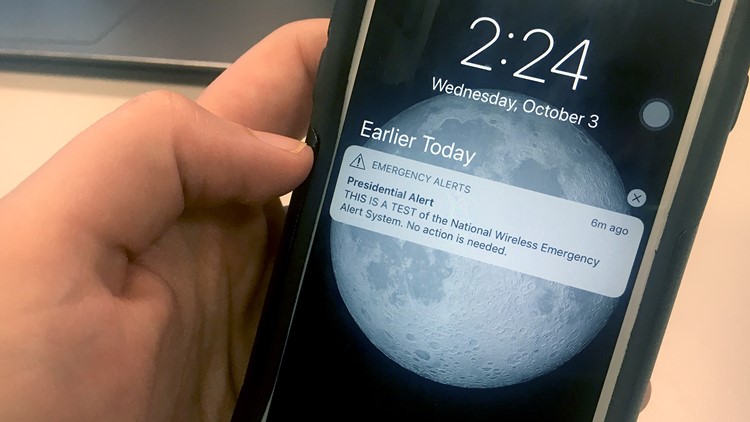Wednesday, October 3 at exactly 2:18 p.m. ET marked the first national use of the Wireless Emergency Alert system, or WEA.
The message sent simply stated, "Presidential Alert" and had text below that read: "THIS IS A TEST of the National Wireless Emergency Alert System. No action is needed."
The Federal Emergency Management Agency estimated about 225 million electronic devices, or about 75 percent of all mobile phones in the country, would receive the alert. It hadn't said yet whether the test went well. Shortly after the alert was sent, FEMA shared a poll on Twitter asking if people received it.
While thousands of articles were published about this test, there are still hundreds of questions, comments and claims spreading misinformation. Here's a breakdown of what you need to know:
What the FCC says
- There is no sign up for this message.
- There is no cost.
- All modern cellphones that meet the WEA criteria will receive these messages.
- There are only 3 legal types of alerts:
- Alerts from the president
- Alerts involving imminent threats to safety or life
- Amber alerts
- Some subscribers allow you to block the last two types of alerts from WEA, but presidential alerts cannot be blocked.
- The FCC says consumers are not tracked or logged in any way.
In a video, FCC Chairman Ajit Pai explained how it works: "Government agencies send the alerts to the Federal Emergency Management Agency or FEMA. FEMA then sends the alerts to the wireless providers, which then push the alerts in turn to mobile phones in the impacted communities."
What FEMA says
- Phones that are on and in service range should receive WEA messages.
- The system was created in 2008 and activated in 2012.
Laws about the usage of WEA
President Barack Obama signed the 2015 "Integrated Public Alert and Warning System Modernization Act" into law in 2016.
It guided the ways in which local, state and federal officials could use these alerts.
A relevant portion of the act reads: "Except to the extent necessary for testing the public alert and warning system, the public alert and warning system shall not be used to transmit a message that does not relate to a natural disaster, act of terrorism, or other man-made disaster or threat to public safety."
Overall, Wednesday's alert is just a test
Cell phone owners in the United States will receive WEA alerts from the president regardless of whether their carrier allows them to opt out of the other alerts.
The presidential alert can only be activated by the current president, but the reasons for doing so are legally defined.
While VERIFY cannot state what a person or administration's long term intent or goals may be, we can VERIFY that the test on Wednesday was just that - a test.
Contributing: Associated Press



